How to Find the Best Sales Course in Brisbane: A Guide
The key to achieving sales excellence lies in finding the perfect sales course program that aligns with your work goals and desired results and empowers you with the skills and discipline to thrive in the highly competitive market. But navigating the sea of sales courses in Brisbane can feel like a daunting challenge. There’s an overwhelming variety, each with its own unique selling points, and it’s tough to know where to begin your training needs. Worry not – your journey towards achieving unmatched sales strategies and expertise is about to get a whole lot simpler.
As you delve into the vast array of sales training courses, it’s essential to stay focused on your specific needs and prioritise the courses that address your areas of improvement. Don’t hesitate to reach out to course providers, ask questions, and seek advice and new ideas from industry peers to gather valuable insights that will help you make an informed decision. With determination and careful consideration, you can conquer the challenge and embark on a transformative journey towards becoming a sales powerhouse and achieving exceptional sales success in your organisation.
Sales Course Options in Brisbane
When it comes to finding the best sales course in Brisbane, you’ll be pleased to know that there are a variety of options available to suit different needs and preferences. Brisbane, as a bustling city with a thriving business community, offers a range of sales training providers and institutions that deliver everything, from high-quality courses to top-notch sales training and coaching.
One reputable option is Dynamo Selling, a national sales training organisation that offers tailored programs for small to large groups. With their expertise in the psychology of sales, sales process and focus on motivation, Dynamo Selling aims to empower individuals and organisations to become leading salespeople. They have been recognised as the Winner of Best Sales Training Provider Australia, demonstrating their commitment to marketing and sales excellence.
Another well-known institution in Brisbane is the Australian Institute of Sales (AIS), which offers comprehensive sales training courses designed to equip individuals with practical skills and knowledge. Their courses cover various aspects such as prospecting, negotiation, relationship building, and closing deals effectively.
If you’re seeking more flexible learning sessions, online sales courses could be an excellent choice. These courses allow you to learn at your own pace and provide access to resources and materials that can enhance your understanding of sales techniques. At Dynamo Selling, they offer virtual sales training programs specifically designed for companies with sales teams across the country. Meanwhile, platforms like Udemy and Coursera also offer highly-rated online sales courses taught by experienced industry professionals. This course covers fundamental topics such as sales mindset, setting expectations, understanding customer buying habits, objection handling, and building rapport with customers.
Ultimately, when selecting a sales course in Brisbane, you should always consider factors such as the level of expertise and experience of the trainers, the relevance of the curriculum to your specific industry and products, and the format of the training (e.g. in-person or online). Other considerations may include the duration and cost of the course, its ability to provide ongoing support and coaching, and past feedback from other participants. We recommend researching several options and comparing them based on these factors before making a decision.
Keep in mind that when selecting a sales course in Brisbane, researching reviews and testimonials from previous participants can also provide valuable insights into the effectiveness and quality of the sales training course.
Variety of Sales Course Types
Sales training programs come in various formats to cater to the different preferences and learning styles of every sales team in different cities. Understanding the different types of sales courses can help you select one that aligns with your needs and goals and helps improve your levels of productivity.
One popular type of sales course is classroom-based training. These courses typically involve attending in-person sessions led by experienced sales trainers who provide interactive projects and learning experiences. Classroom-based training allows for real-time feedback, peer interaction, and networking opportunities with fellow participants.
Another option is virtual sales training, which takes place online through live webinars or pre-recorded video modules. This format offers flexibility and convenience as anyone can participate from anywhere with an internet connection. Virtual training often includes interactive elements such as group discussions, role-playing exercises, and Q&A sessions with instructors.
For example, Dynamo Selling offers virtual sales training programs that utilise innovative technologies to deliver engaging content and practical skills development. Their virtual courses cover a range of topics such as prospecting techniques, effective communication strategies, objection handling, and closing deals remotely.
Lastly, self-paced online courses present another option for individuals who prefer to learn independently at their own pace. These courses provide access to pre-recorded video lessons, reading materials, quizzes, and sometimes even personalised feedback from instructors. They offer flexibility in scheduling and allow learners to revisit the course materials as needed.
While self-paced online courses provide flexibility, they require self-discipline and motivation to complete the material effectively. It’s important to set aside dedicated time for learning to ensure you gain maximum value from the course.
Criteria for Selecting a Sales Course
When it comes to finding the best sales course in Brisbane, there are several important criteria to consider. First and foremost, consider the reputation and credibility of the course provider. Look for institutions or training organisations that have a strong track record of delivering high-quality sales courses and have positive reviews from past participants. This information can be found through online research or by seeking recommendations from industry professionals.
Another crucial aspect to consider is the course content and curriculum. A comprehensive sales course should cover a range of topics, including but not limited to prospecting, negotiation techniques, closing strategies, and post-sales follow-up. It should also provide practical exercises and case studies that allow you to apply the concepts learned in real-world scenarios.
Additionally, take into account the format and delivery methods of the sales course. While some people prefer traditional classroom-style settings with face-to-face interactions, others may find online courses more convenient due to flexibility in scheduling. Consider your own preferred learning style and choose a format that maximises your ability to absorb and retain information effectively.
It’s also worth exploring whether the course offers any additional resources or support beyond the core curriculum. Look for courses that provide access to industry-specific tools, ongoing mentorship or coaching programs, networking opportunities with industry professionals, or online communities where you can connect with fellow learners and share work experiences.
Lastly, don’t forget to consider the cost and duration of the course. Evaluate whether the price is reasonable based on the value offered and compare it with other similar courses on the market. Additionally, ensure that the course duration aligns with your availability and timeline for skill development.
- A report from the Training Industry showed that 47% of top-performing companies increased their spending on sales training compared to 39% of low-performing companies.
- A recent study indicated that after undergoing a formal sales training programme, individuals boosted their closing rates by an average of 25%.
Importance of Qualifications and Course Content
In any professional training programme offered, whether it be in Sydney, Melbourne, Brisbane or Adelaide, it’s essential to evaluate the services and qualifications of instructors and assess the relevance and depth of their course content. The expertise and experience of the instructors play a significant role in shaping your learning experience and imparting practical skills relevant to the sales industry.
Some may argue that qualifications are not always indicative of an individual’s competency in teaching sales skills. While this may be true to some extent, having instructors with relevant certifications or industry experience provides a certain level of confidence regarding their intelligence, knowledge and expertise. It’s important to strike a balance between qualifications and practical experience when evaluating potential instructors for a sales course.
Moreover, the content of a sales course should also be carefully crafted to meet the demands of today’s dynamic business environment. It should provide up-to-date strategies, techniques, and best practices that are applicable in real-world selling scenarios. Look for courses that incorporate case studies, real-life examples, and interactive learning activities to enhance engagement and provide practical insights.
For instance, a sales course may include modules on leveraging social media platforms for product advertising and prospecting, as this is a strategy that has gained prominence in recent years. Such relevant content ensures that you acquire skills that are aligned with current market trends. By considering the qualifications of instructors and assessing the course content in terms of relevance, practicality, and applicability to real-world scenarios, you can ensure that you select a sales course that provides you with valuable knowledge, practical tips and skills to excel in your sales career.
Analysis of Top Sales Instructors in Brisbane
One key factor when searching for the best sales course in Brisbane, Australia is the quality of the instructors. The expertise and experience of the instructors can greatly impact the effectiveness of the course and your ability to learn and apply valuable skills as a salesperson.
In Brisbane, one highly regarded sales instructor is Raimond Volpe, CEO of Dynamo Selling. With over 20 years of experience coaching sales teams and sales managers, Raimond is considered a go-to expert in sales, negotiation, and influencing with integrity. His unique sales training methodology focuses on identifying specific behavioural traits to properly understand clients’ solutions and effectively communicate with them on both the short and long-term benefits and risks. Raimond’s extensive experience working with small and large organisations, including Microsoft and Jim’s Mowing, showcases his ability to tailor his approach to various industries and businesses.
Another notable sales instructor in Brisbane is Ambrose Blowfield from Sales Mastery Australia. With a background in sales management and business networking, Ambrose brings practical knowledge and real-world experience to his training programs. He emphasises hands-on learning and provides participants with actionable strategies they can implement immediately.
While these are just a couple of examples, it’s important to research and consider multiple instructors before making a decision. Look for instructors who have relevant industry experience, a proven track record of success, and a teaching style that resonates with you. Reading reviews and testimonials from past participants can also provide valuable insights into the effectiveness of their training programs.
Career Potential from Brisbane Sales Courses
Completing a sales course in Brisbane can open up various job opportunities and provide numerous advantages for your career growth. The skills and knowledge gained from these courses can make you a valuable asset in today’s competitive sales landscape.
Firstly, one of the most significant advantages of completing a sales course is the increased employability it offers. Sales positions are in high demand across industries, and having formal training and certification can give you a competitive edge over other candidates. Sales courses equip you with essential skills which are highly sought after by employers. Many companies offer robust commission structures, bonuses and incentives on top of their salary base tied to performance metrics—an attractive incentive for motivated sales professionals seeking financial rewards.
Secondly, sales courses offer the advantage of career advancement opportunities. Successful completion of a sales course equips you with specialised knowledge that can differentiate you from other candidates. As you acquire more experience and showcase your proficiency in applying the techniques learned during the course, you become increasingly eligible for promotions within your organisation or other companies in the industry. These capabilities make you an asset to any organisation seeking to enhance its sales force.
Imagine starting as an entry-level sales representative but continuously honing your skills through professional development programs. Over time, your exemplary performance catches the attention of your superiors, leading to promotions to team leader, sales manager, and eventually even executive leadership roles within the company. These career advancements not only provide financial rewards but also allow you to take on more challenging and fulfilling roles.
In addition to monetary rewards and career progression, attending a sales course can provide intangible advantages as well. You’ll develop essential skills like effective communication, active listening, and empathy that are beneficial in both professional and personal settings. These skills will enable you to foster stronger connections with clients, colleagues, and even in your personal relationships.
Completing a sales course in Brisbane can provide networking opportunities that can further enhance career prospects. Networking events, workshops, and online communities associated with these courses can facilitate connections with potential employers, mentors, or even future business partners. From increased earning potential to personal growth, the advantages gained from availing a sales course make it a worthwhile investment for aspiring sales professionals.





